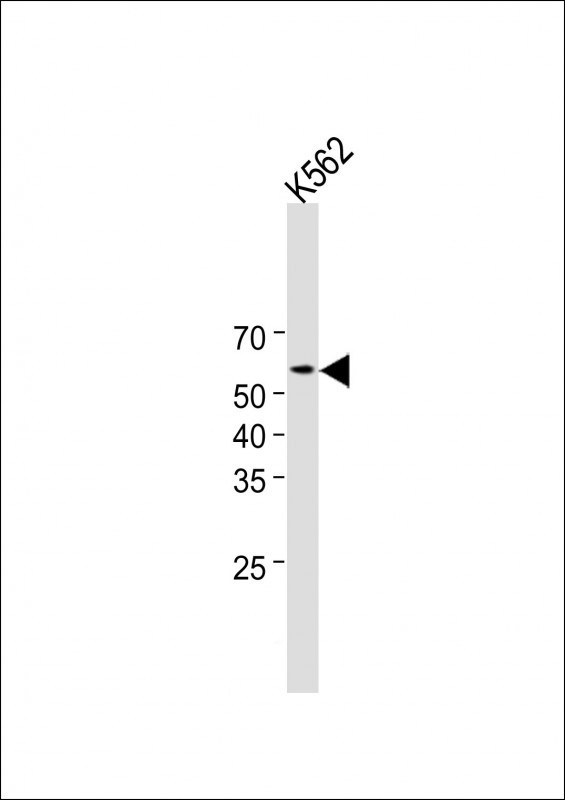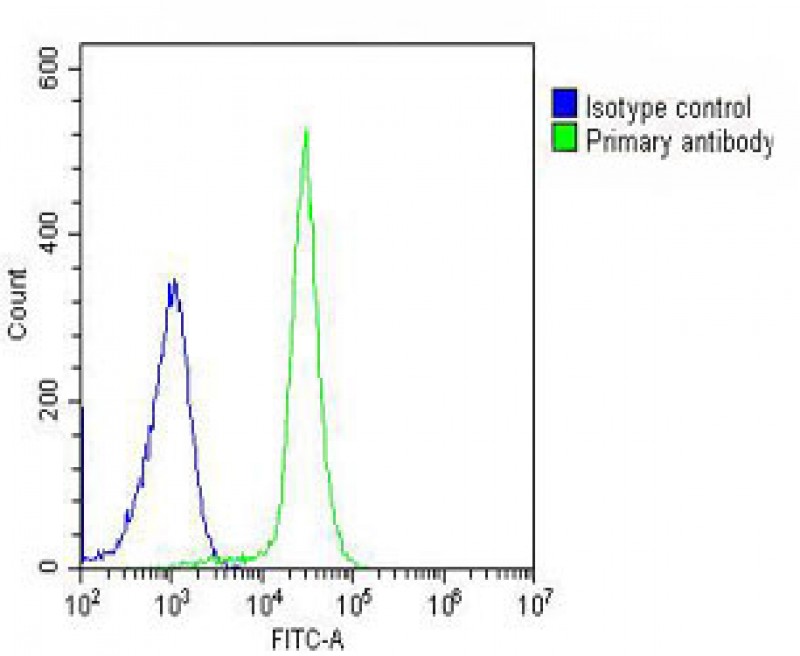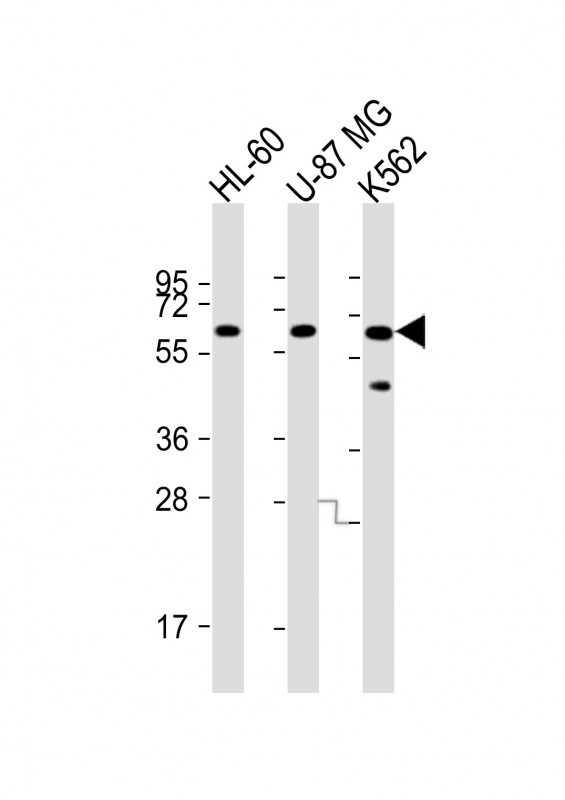IL1RL2 Rabbit Polyclonal Antibody (Center)
产品基本信息


Overlay histogram showing K562 cells stained with BD-PB4347 (green line). The cells were fixed with 2% paraformaldehyde (10 min). The cells were then icubated in 2% bovine serum albumin to block non-specific protein-protein interactions followed by the antibody for 60 min at 37oC. The secondary antibody used was Goat-Anti-Rabbit IgG, DyLight? 488 Conjugated Highly Cross-Adsorbed at 1/200 dilution for 40 min at 37oC. Isotype control antibody (blue line) was rabbit IgG (1μg/1x10^6 cells) used under the same conditions. Acquisition of >10, 000 events was performed.

All lanes : Anti-IL1RL2 Antibody (Center) at 1:8000 dilution Lane 1: HL-60 whole cell lysate Lane 2: U-87 MG whole cell lysate Lane 3: K562 whole cell lysate Lysates/proteins at 20 μg per lane. Secondary Goat Anti-Rabbit IgG, (H+L), Peroxidase conjugated at 1/10000 dilution. Predicted band size : 65 kDa Blocking/Dilution buffer: 5% NFDM/TBST.
相关文献
产品问答
相关产品

市场:027-65023363 行政/人事:027-62439686 邮箱:marketing@brainvta.com 客服:18140661572(活动咨询、售后反馈等)
销售总监:张经理 18995532642 华东区:陈经理 18013970337 华南区:王经理 13100653525 华中/西区:杨经理 18186518905 华北区:张经理 18893721749
地址:中国武汉东湖高新区光谷七路128号中科开物产业园1号楼
Copyright © 武汉枢密脑科学技术有限公司. All RIGHTS RESERVED.
鄂ICP备2021009124号 DIGITAL BY VTHINK